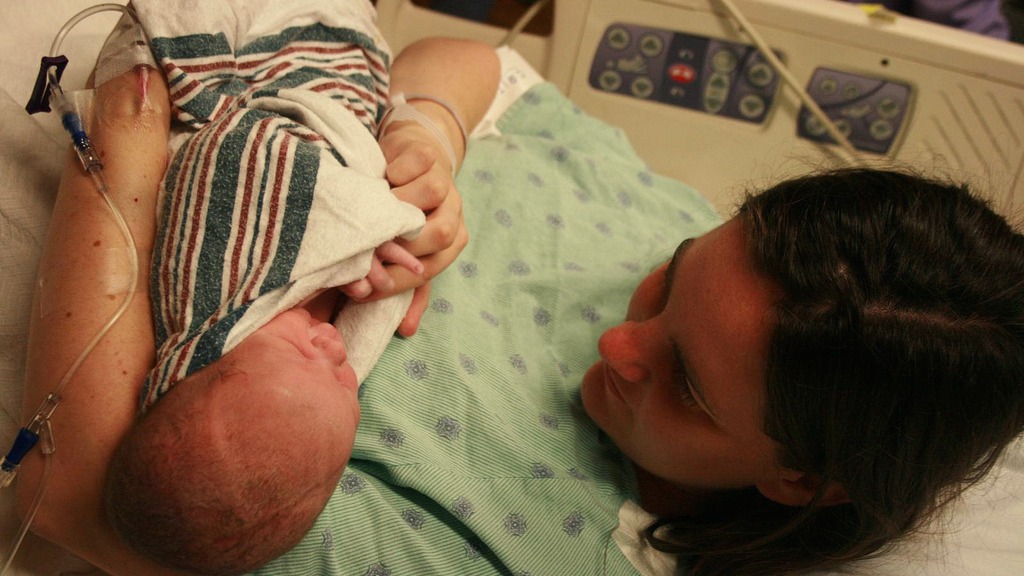While the contemporary ability to determine one's family size is heralded as a mark of Western progress, that freedom carries with it moral and spiritual responsibility. Some branches of Christendom (most notably, the Catholic Church) have well-documented doctrinal positions about issues of reproductive technology and artificial means of birth control, many in the evangelical world default to silence on the issue of permanent sterilization.
When Hobby Lobby and others made headlines for seeking exemption from the Affordable Care Act on religious grounds, most of the coverage and conversation focused on birth control pills and abortion, though some businesses also opposed the sterilizaton requirements. Vasectomies and tubal ligations were an afterthought, if they were mentioned at all.
As an antidote to evangelicals' silence on the issue, I am not in any way advocating that church leaders direct couples about the number and spacing of their children. Instead, I see the value in coming alongside couples in search of godly wisdom in sharing stories and being willing to explore in prayer what God may be asking of them.
As Susanne Burden suggested in the recent Her.meneutics post When We Close Our Wombs, churches should "offer safe spaces for individuals to discuss the theological and personal reasons for ending our reproductive years." I wish my husband and I could have been a part of such a conversation when we were considering permanent sterilization decades ago.
At age 27, just hours after I gave birth to our third child, I had a tubal ligation. What most would call a wise and responsible choice on our part was actually a decision based primarily on our unprocessed, unvoiced fears. As a result, it left deep sorrow and regret in our lives. Our fears about the future led us to stumble toward a permanent decision based on our temporary circumstances. Fear is a crummy decision-making partner.
After discovering that baby No. 3 was on the way, my husband Bill and I commented that we were so exhausted from our day-to-day lives we couldn't even remember when or how the child could have been conceived. We had a two-year-old toddler and a five-month-old baby crammed in our tiny apartment. Bill was in school full-time and working full-time. I was babysitting for a neighbor's children in addition to caring for our own. We affirmed that children were a gift from God, but both felt that we'd reached our max capacity to receive any more gifts, no matter how wonderful they were. (When I expressed how overwhelmed I was by this unexpected pregnancy to my father, an unbeliever, he suggested we could "see someone to take care of the problem" since we were about to exceed the American ideal of two children per household. I told him flatly abortion wasn't an option.)
Yet our attempts at birth control hadn't been successful. I became pregnant though we'd used artificial birth control. Most of the families at our conservative, non-denominational congregation had two or three children. A few daring souls had four. Informal conversations with a few other young moms revealed that one partner had typically elected permanent sterilization after their families reached a size of their choosing.
These were people who took God very seriously. They were willing to fast and pray in search of God's healing of a member's cancer, and testified of his care in the smallest details of their lives from miraculous delivery of prime parking spaces to supernatural bargains on just the right dress for a special occasion. Yet when various friends at church talked about their decision to undergo permanent sterilization, their language was surprisingly cavalier. Everyone I asked spoke of their decision solely in terms of their personal preference: "We only want 3 children."
When I asked my obstetrician about sterilization during a routine prenatal visit, he described the procedure to me, and said he didn't like to do the procedure on women under 30, but would make exceptions if they had several children and were convinced they were done having babies.
It is telling that my husband and I avoided the topic of our decision in our prayers to God. We never asked him what he might have wanted from us. I was terrified of what his answer might have been. It seemed much more productive to keep reminding each other we couldn't handle any more children. And the more we wallowed in that toxic stew of self-pity and exhaustion, the less able we were to imagine our lives would ever get easier, or fully savor the remarkable blessing each child was.
A few hours after I gave birth to a beautiful baby boy, I was back in the operating room for my tubal ligation. Just before the anesthesiologist put me under, my obstetrician looked me in the eye and asked me if I was sure I wanted to go through with the procedure. I felt as though God might have been interrupting my plans with that question. I was afraid and didn't feel as though that moment was the time to explore the question. I closed my eyes and told the doctor to go ahead.
My husband and I both came to regret the decision. I grieved the way I'd processed the decision without submitting it to God, and we eventually found ourselves longing for another child, though it was not to be. Though my life has borne different fruit than it may have had I not undergone the procedure, neither has it been barren. God is a redeemer, even of our impulsive actions.
A note: our personal convictions about this topic are not prescriptions for the decisions of others. I am, however, convinced that we would do well to create space in our churches so we can have conversations about these issues – as well as identifying those who are willing to listen in prayer with couples in search of wisdom. Both require spiritual maturity, which not so ironically, requires the simple faith of a trusting child.









